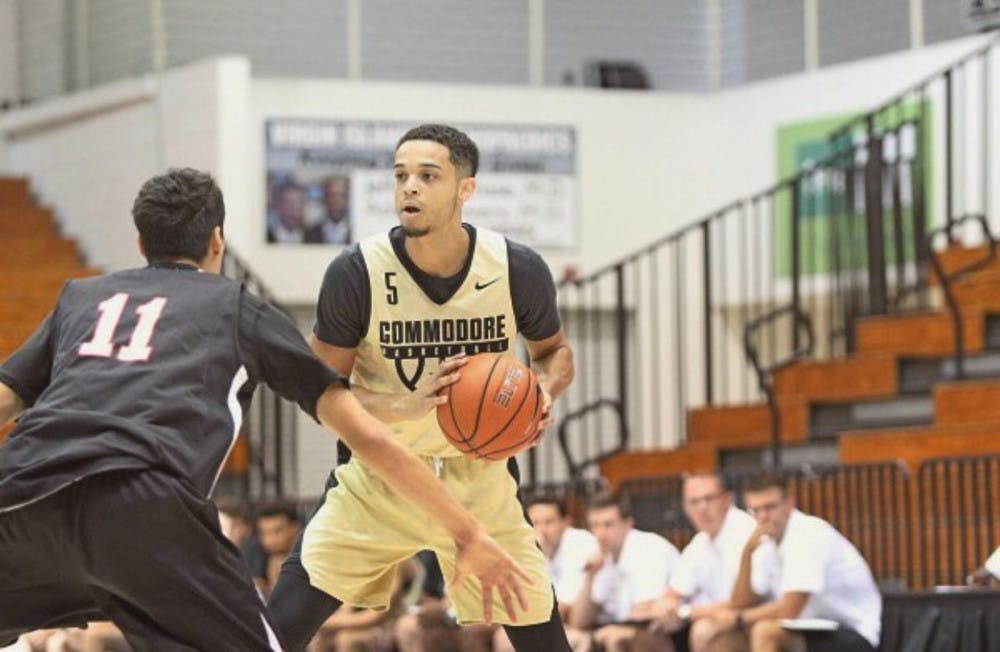As winter break began, many students went home for the holidays, but Mike Parks Jr., forward for the University of Memphis men’s basketball team, remained on campus because the basketball season is underway.
“I just have a good mindset no matter what,” Parks said. “I’m blessed to have a scholarship, so I have to deal with what comes with it.”
Student-athletes can experience special perks typical students do not normally experience. Depending on the sport and the institution, a player will play games on national television and sometimes have their face plastered on a billboard on an interstate highway, but these luxuries come with a price.
Parks said he rarely has free time, and if he does, he is in a gym perfecting his craft.
“I wake up at 7:30 a.m. for weights,” Park said. “Then, I have classes from 9 a.m. to 1 p.m. and study hall 1:30 to 2:30 p.m. Lastly, practice from 3 to 5:30 p.m.”
Parks said he sees balancing a rigorous school schedule and maintaining good grades as part of his process.
“It can be real stressful because you’ll have multiple things due (for homework), then practice, which means you’ll probably have to stay up late,” Parks said.
Parks also said he has help when he goes to the mandatory study hall.
“I just try to knock out all my work in advance before the due date, so I won’t have as much stress,” Parks said.
Like Parks, Matthew Fisher-Davis, point guard for the Vanderbilt Commodores men’s basketball team, also deals with the daily grind of being a student-athlete and said keeping his priorities in order and managing his time help him.
“Some of the biggest challenges balancing both is pushing through being tired to study,” Fisher-Davis said. “When I have group projects, it’s almost impossible to meet.”
Fisher-Davis said he stays on top of his assignments because having good grades is a part of the process of being a student-athlete.
“I manage everything by just taking care and focusing on whatever task I’m doing in the moment,” Fisher-Davis said. “I plan out times to do things ahead of time, so when I get to them, I can focus on those things I’m doing in the moment.”
This balancing act is not just for basketball players — all student-athletes find themselves juggling a full schedule and staying on top of their sport. Melinda Murdock, middle distance sprinter for the Memphis women’s track and field team, has her hands full with a variety of engagements.
Murdock wears many hats. She is not only an athlete, but she also works part-time at Starbucks. Additionally, she’s the president of the Campus United Student Action Council, a student organization that pushes students to be advocates for different social groups.
“On my busiest days, I am starting with class around 9 a.m., practice straight after around 1 or 2 p.m., then straight to evening classes around 5:30 to 7 p.m.,” Murdock said. “Then my organization meets Wednesday nights at 7:30 p.m.”
Murdock prioritizes her tasks and manages her time to stay on top of her schedule.
“I handle what’s most important or approaching a deadline first,” Murdock said. “I take advantage of moments I might get between class and practice to knock out an assignment, or if given extra time in class, I start working on an assignment early.”
Having so much to do can become stressful. Murdock said at times her life can become hectic, but she has a way to deal with everything.
“I have to always remind myself I am not doing all of this alone,” Murdock said. “My main support systems are my faith in God and the many wonderful friends, family and faculty who are resources of motivation and support me.”
Matthew Fisher-Davis, point guard for Vanderbilt University, looks for a teammate in practice. Even though it can be difficult, Fisher-Davis said having good grades should be mandatory for all student-athletes.




